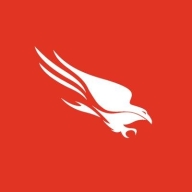


Microsoft Defender for Cloud and CrowdStrike Falcon Cloud Security compete in the cloud security sector. While Microsoft Defender offers robust security across the Microsoft ecosystem, CrowdStrike stands out with its cloud-native deployment and effective threat intelligence. CrowdStrike is often preferred for its simplicity and threat response capabilities.
Features: Microsoft Defender for Cloud offers seamless integration with Microsoft services, AI and machine learning capabilities, and comprehensive protection. It enhances visibility across systems but faces challenges in managing multiple subscriptions. CrowdStrike Falcon Cloud Security is valued for its lightweight, cloud-based threat detection, endpoint protection, and single console management, notable for its real-time response and threat-hunting features.
Room for Improvement: Users of Microsoft Defender for Cloud suggest improvements in customization, more efficient automation, and reducing false positives. Integration with legacy systems and simplifying cost management are also noted. CrowdStrike Falcon Cloud Security users seek enhanced customer support, expanded forensic capabilities, and streamlined pricing. Suggestions for better Linux support and integration simplicity are noted.
Ease of Deployment and Customer Service: Microsoft Defender for Cloud is praised for ease of integration within the Microsoft ecosystem, especially Azure, though technical support experiences vary. CrowdStrike Falcon excels in easy deployment with its lightweight nature, requiring minimal infrastructure changes. Customer service varies, with some users requesting more consistent support.
Pricing and ROI: Microsoft Defender for Cloud provides competitive pricing options but faces complexity in its pricing structure. Some users find ROI strong due to integration ease, while others struggle with high costs. CrowdStrike Falcon is considered expensive but justifies its pricing with comprehensive coverage and operational efficiencies, with users highlighting ease of management and effective detection capabilities as reasons for solid ROI.
| Product | Market Share (%) |
|---|---|
| Microsoft Defender for Cloud | 13.6% |
| SentinelOne Singularity Cloud Security | 3.2% |
| CrowdStrike Falcon Cloud Security | 6.3% |
| Other | 76.9% |



| Company Size | Count |
|---|---|
| Small Business | 43 |
| Midsize Enterprise | 21 |
| Large Enterprise | 53 |
| Company Size | Count |
|---|---|
| Small Business | 12 |
| Midsize Enterprise | 6 |
| Large Enterprise | 11 |
| Company Size | Count |
|---|---|
| Small Business | 25 |
| Midsize Enterprise | 8 |
| Large Enterprise | 44 |
SentinelOne Singularity Cloud Security offers a streamlined approach to cloud security with intuitive operation and strong integration capabilities for heightened threat detection and remediation efficiency.
Singularity Cloud Security stands out for its real-time detection and response, effectively minimizing detection and remediation timelines. Its automated remediation integrates smoothly with third-party tools enhancing operational efficiency. The comprehensive console ensures visibility and support for forensic investigations. Seamless platform integration and robust support for innovation are notable advantages. Areas for development include improved search functionality, affordability, better firewall capabilities for remote users, stable agents, comprehensive reporting, and efficient third-party integrations. Clarity in the interface, responsive support, and real-time alerting need enhancement, with a call for more automation and customization. Better scalability and cost-effective integration without compromising capabilities are desired.
What are SentinelOne Singularity Cloud Security's standout features?SentinelOne Singularity Cloud Security is deployed in industries needing robust cloud security posture management, endpoint protection, and threat hunting. Utilized frequently across AWS and Azure, it assists in monitoring, threat detection, and maintaining compliance in diverse environments while providing real-time alerts and recommendations for proactive threat management.
CrowdStrike Falcon Cloud Security is a platform of cloud security solutions aimed at protecting organizations from breaches while simplifying cloud security management. The unified platform combines several cloud security functionalities for comprehensive protection. Built on the CrowdStrike Falcon Platform, it leverages the powerful agent and technology used in CrowdStrike's renowned endpoint protection solutions, extending its capabilities seamlessly to cloud environments.
CrowdStrike Falcon Cloud Security is designed to be a shield for the cloud infrastructure. One of its key strengths is its ability to monitor cloud workloads for potential breaches and attacks. It doesn't matter if you're running virtual machines, containers, or a combination of both across different cloud providers – Falcon Cloud Security offers visibility and protection. Additionally, it works tirelessly to pinpoint misconfigurations or vulnerabilities in your cloud setup, proactively stopping issues before they become full-blown security incidents. Compliance becomes easier too, as it can check if your deployments meet the requirements of various industry standards and regulations.
If you heavily utilize containers and Kubernetes, Falcon Cloud Security has you covered. It delves deep into container images and running containers to spot weaknesses and potential threats, helping you secure your containerized applications from the moment they're developed to when they're up and running. Finally, it tackles the often messy world of permissions in the cloud. Falcon Cloud Security analyzes identities and their attached permissions, ensuring that the principle of least privilege is followed and sensitive data isn't exposed due to overly broad access rights.
In essence, CrowdStrike Falcon Cloud Security aims to simplify the complexities of cloud security by consolidating tools, providing a centralized view of your risks and threats, and delivering advanced protection that blends seamlessly with your development processes.
Based on the interviews we conducted with CrowdStrike Falcon Cloud Security users, overall, the sentiment is positive. Users praise the solution's efficacy in detecting and preventing threats, its ease of use, scalability, stability, and integration with existing systems. There were also mentions of areas for improvement, such as the pricing, the user interface, and customer support.
Microsoft Defender for Cloud is a comprehensive security solution that provides advanced threat protection for cloud workloads. It offers real-time visibility into the security posture of cloud environments, enabling organizations to quickly identify and respond to potential threats. With its advanced machine learning capabilities, Microsoft Defender for Cloud can detect and block sophisticated attacks, including zero-day exploits and fileless malware.
The solution also provides automated remediation capabilities, allowing security teams to quickly and easily respond to security incidents. With Microsoft Defender for Cloud, organizations can ensure the security and compliance of their cloud workloads, while reducing the burden on their security teams.
We monitor all Cloud Workload Protection Platforms (CWPP) reviews to prevent fraudulent reviews and keep review quality high. We do not post reviews by company employees or direct competitors. We validate each review for authenticity via cross-reference with LinkedIn, and personal follow-up with the reviewer when necessary.